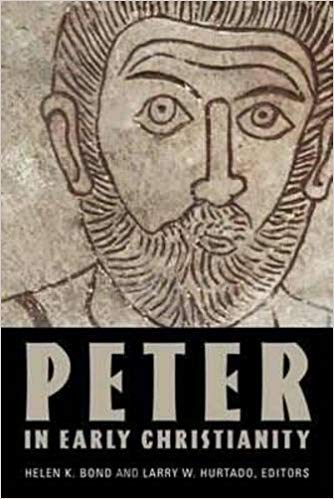Jonathan Lo (pp.62-75) revisits the Petrine speech found in Acts, in light of Greco-Roman parallel historical works and how those works handle speech material. He quotes my colleague Craig Keener affirmatively when he says that historians were allowed to put speeches in their own vocabulary, provided he did not invent content. Lo however concludes that the fact that there is a resemblance between the speeches in Acts and those in ancient historians in regard to both style and content is inconsequential to whether they reflect historical realities. This is not correct. It all depends on which historians Luke is most like, and the evidence suggests he follows those who were more conservative in handling the speech materials— namely Thucydides and Polybius. Lo makes much of the fact that the basic outline of content in Peter’s speech are pretty much the same in all his speeches—reference to the death of Jesus at the hands of his fellow Jews, Jesus’ resurrection, exaltation to the right hand of God, an emphasis on the apostles as witnesses, an exhortation to repent and receive forgiveness of sins. This could suggest there was a typical pattern to early apostolic preaching (see C.H. Dodd’s classic study on this). However, and it is a big however, the message found in Peter’s speeches however similar to each other differ from the other speeches in Acts with the exception of Paul’s early speech in Psidian Antioch in Acts 13.This may establish the continuity between Peter’s and Paul’s preaching to Jews. But it is clearly different from Paul’s other speeches in Acts, however they were directed to non-Jews. The notable Semitic phrases like ‘times of refreshing’ or times of restoring of all things could suggest archaizing by Luke, but more likely it tells us something about the source material Luke was using when it comes to Peter’s speeches. Note the unique and archaic phrases applied to Jesus in Peter’s speeches such as Jesus as the Just or Righteous One, Jesus as the author of life or as God’s servant.
In his conclusions, Lo helpfully summarizes as follows (p.74): “the length of the speeches in Acts is considerably shorter than those found in other works of ancient history, suggesting that the speeches are not vehicles for Luke to demonstrate his rhetorical ability through expansion but rather succinct summaries of lengthier addresses.” He also notes that Luke was chronologically closer to the time his speech material was first spoken than either Thucydides or Livy were. Lo suggests that a close attention to the way Luke uses and edits Markan material which he takes over in his Gospel suggests he is a conservative editor, though he phrases things in his own language. Luke’s use of Mark shows he is a reasonably faithful redactor, according to Lo.













